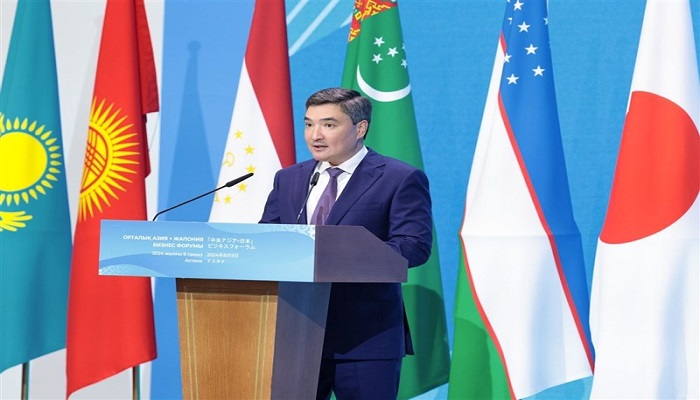PNN – With border stability in Central Asia established, Japan has abandoned its two-decade-long policy of “soft power” and is seeking a more active economic role, particularly in the area of natural resources; recent official visits and business meetings reflect this shift in strategy.
According to the report of Pakistan News Network, the complete resolution of border disputes in Central Asia over the past two months has led to a fundamental change in Japan’s approach towards this important geopolitical region.
After two decades of focusing on “soft power” initiatives, Tokyo now appears to be seeking to gain a tangible stake in the economies of Central Asian countries, particularly in exploiting their rich natural resources. This shift in strategy, however, has the potential to put Japan at odds with the interests of the People’s Republic of China and the Russian Federation, the two dominant foreign powers in the region.
Two decades of focus on soft power
Japan, in cooperation with regional countries, established the “Central Asia + Japan” dialogue platform in 2004. This platform, which was formed at the initiative of Tokyo and Kassym-Jomart Tokayev (then Foreign Minister and current President of Kazakhstan), was a platform for holding regular meetings at the ministerial and deputy ministerial levels and advancing cooperation.
Within the framework of these talks, Japan provided significant financial assistance to countries in the region in the form of project financing, development loans (such as a loan of several hundred million dollars to Uzbekistan in 2024 for economic reforms) and grants (such as a $42.5 million investment in Tajikistan in 2023-24 and the implementation of road construction projects, solar energy, improvement of Dushanbe airport, and provision of scholarships).
Caution against great powers and post-stabilization rotation
During this period, Japan generally avoided entering into direct economic competition with other powers active in Central Asia, and its soft power activities were often seen as complementary to the efforts of others.
The only exception was the rise in tensions with China due to Beijing’s growing assertiveness and expanding economic influence in the region, which Tokyo saw as a geopolitical threat, although Japan’s countermeasures did little to slow China’s advance.
Read more:
From energy to logistics; new agreements in Baku-Beijing strategic partnership
One of the main reasons for Tokyo’s caution in the past was concerns about instability in Central Asia and its negative impact on potential investments. But this major obstacle has been largely removed with the signing of border agreements, first between Kyrgyzstan and Tajikistan, and then a comprehensive regional agreement on March 31, 2025, which ended decades of territorial disputes.
Japan, perhaps more than any other power, seems to view this development as an “opening of doors” for expanding its role in Central Asia, a role that is no longer limited to soft power but also includes access for Japanese companies to the region’s vast natural resources.
Tokyo’s new steps and the region’s response
In recent weeks, Tokyo has taken practical steps to explore the possibility of increasing its economic participation in the region by holding meetings between Japanese companies and Central Asian governments.
Central Asian governments appear to welcome this development, seeing Japan as a new option to counterbalance their other foreign “partners.” However, they continue to emphasize the need to continue Japan’s effective soft power programs (although these programs remain smaller in scale than those of China and Russia).
The most prominent manifestation of this change of approach was the official visit of Turkmen President Berdi muhamedow to Japan two weeks ago. During the visit, in addition to the opening of a trade fair and high-level meetings (with the Prime Minister and the Emperor), important discussions took place on expanding trade and increasing Japanese investment in Turkmenistan’s energy sector.
The choice of Turkmenistan as the first destination may be due to the country’s relative isolation in recent years (due to its policy of neutrality) and, as a result, the existence of more opportunities for new players such as Japan.
Regional concerns and Japan’s cautious move
The recent meeting of the “Central Asia + China” platform in Astana and the security statement of the Kyrgyz authorities reflect existing sensitivities. At the Astana meeting, Beijing emphasized the importance of its role and called for its relations with the region not to be threatened (possibly by new actors such as Japan). Kyrgyz officials also expressed fears that Moscow might exploit external factors (such as Japan’s increased presence) to destabilize the region (with the aim of diverting attention from the war in Ukraine).
These concerns (Russia’s concern about foreign influence and China’s concern about overtaking competitors) are also part of the calculations of Central Asian capitals. As a result, Japan is expected to continue to tread cautiously in the near future, but given its strong desire to access Central Asia’s natural resources in the new context of regional stability, it will continue to “test the space” and gradually expand its economic influence.

